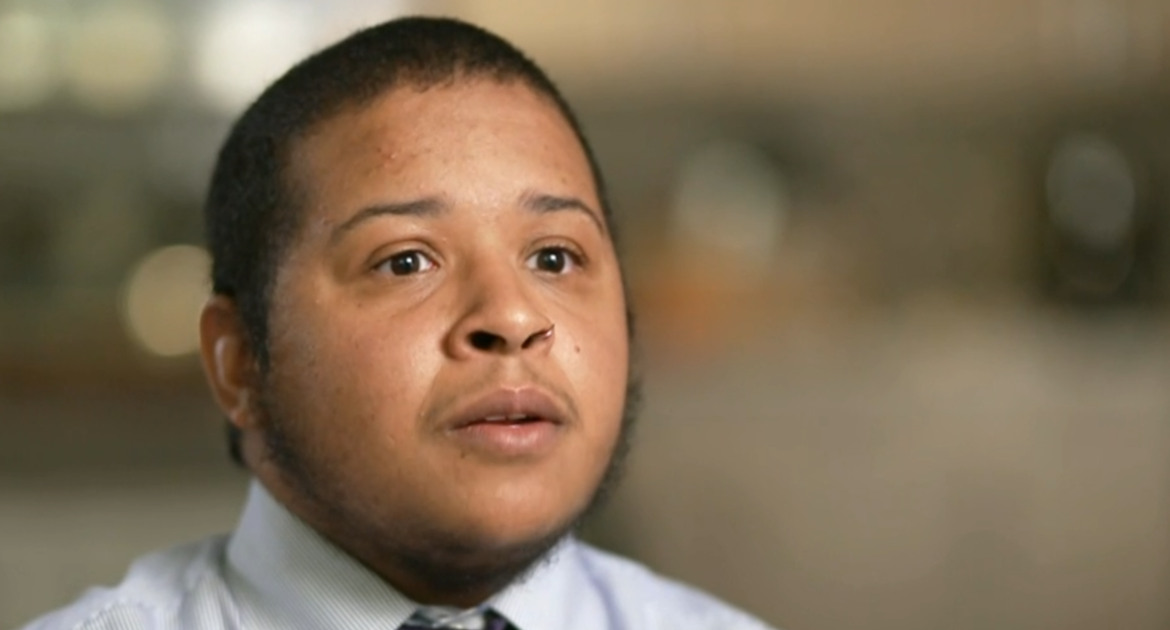
When Jaden Janak learned he had been exposed to COVID-19 shortly after his 75-year-old grandmother died from the virus last year, he knew what he had to do. He went to the hospital for a rapid test that he thought would be free.
He was wrong. Several months later, the Texas resident received two bills totaling over $4,000.
“I felt very angry. I felt deceived,” Janak told CBS News’ consumer investigative correspondent Anna Werner.
Janak is not alone. Although COVID-19 testing costs are supposed to be covered under most circumstances, some people have been getting large and confusing bills, including some for hundreds or even thousands of dollars.
The first bill Janak received was for about $2,700, covering the emergency room and lab fees. He later received a doctor’s bill for some $1,300.
His insurance provider, BlueCross BlueShield of Texas, told him not to worry because it would send him a check for those bills, he said. It eventually did send him a check that he used to pay the Tulsa ER & Hospital, Janak said.
But unbeknownst to him, a second check the insurer sent him never arrived, he said, leaving him fighting the hospital’s bill and getting collection calls for nearly a year. BlueCross BlueShield of Texas said they sent it to the address they had on file but it was returned to them because Janak had moved.
The hospital told CBS News it will accept whatever money Janak’s insurance company sends him and that once they get it, he won’t owe anything more.
“What if this happens to someone else and they do truly believe that they are personally liable for these charges? How are they going to be able to make ends meet given where the economy is?” Janak said.
Barry and Jaime Constanzo of Myrtle Beach, South Carolina, had a similar experience in September. They were planning to visit their grandchildren when they developed what they thought might be coronavirus symptoms and went to the only location they say had rapid tests available that day: Conway Medical Center. Their results were negative, but they did get the bills — totaling some $570 after their insurance paid.
“They tell you you’re negative, then they ask you why you’re here, and then they look in your ears, nose and mouth, and the next thing you know, you get a bill, non-COVID related,” Barry Constanzo said.
Conway Medical Center told CBS News the Costanzos went to the wrong place — to the hospital’s “emergency department triage tent” — and that if they wanted a free COVID-19 test, they should have gone to “the free drive-through testing.”
Since they were technically at the emergency room, Conway Medical Center said it was “legally bound to medically evaluate, treat, and discharge” them. In this case, it was for allergies — treatment the couple said they didn’t ask for.
“Why would I go to a hospital or to any testing site for COVID if I was there for allergies?” Jaime Constanzo said.
Examples like those are cropping up even though a law passed last year requires insurance companies to cover tests and any associated treatments, said professor Sabrina Corlette, founder and co-director of the Center on Health Insurance Reforms at Georgetown University.
“Part of it is because our health care system is very complicated and confusing,” she said.
Corlette said coronavirus testing costs are supposed to be covered 100% by insurance companies, but she has been hearing of some providers tacking on certain fees, sometimes called “facility fees” or “emergency room fees.”
“If you get a physical exam or they say, ‘Well, let’s test you for flu or other things as well,’ all of that visit is supposed to be covered by the insurer,” she said.
It turns out that’s exactly what happened to the Costanzos. They were each charged $771 for an emergency room fee, which their insurer would not pay in full, leaving them jointly with bills of about $570.

